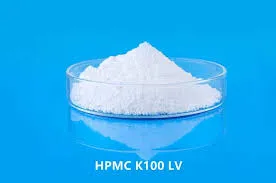
Oct . 10, 2024 13:49 Back to list
HPMC Manufacturers for Hydroxypropyl Methyl Cellulose Production and Application Solutions
HPMC An Essential Component in Modern Manufacturing
Hydroxypropyl Methyl Cellulose (HPMC) has emerged as an essential ingredient in various industries, primarily due to its unique properties and versatility. HPMC is a non-ionic polymer derived from cellulose, making it a plant-based compound that is widely accepted for various applications, particularly in food, pharmaceuticals, and construction.
One of the most significant advantages of HPMC is its ability to function as a thickener, emulsifier, and stabilizer. These characteristics make it particularly valuable in the food industry, where it can enhance the texture and shelf-life of products. Food manufacturers use HPMC to improve the consistency of sauces, dressings, and desserts. Its ability to retain moisture enables products to remain fresh longer, which is a critical factor for both producers and consumers alike.
HPMC An Essential Component in Modern Manufacturing
The construction and building materials sector also benefits immensely from HPMC. It is commonly applied in cementitious materials such as mortar, tile adhesives, and plasters. The inclusion of HPMC improves adhesive properties, provides workability, and enhances water retention, which is essential for achieving optimal strength and durability in construction applications. Its ability to extend the pot life of these materials makes it a favorite among builders and contractors.
hpmc-hydroxypropyl methyl cellulose manufacturer

When it comes to sourcing HPMC, choosing the right manufacturer is crucial. Several factors must be considered, including product quality, consistency, and adherence to regulatory standards. Reputable manufacturers invest in state-of-the-art technology and quality control measures to ensure that their products meet the stringent requirements of various industries. They also offer technical support to help clients optimize their formulations and achieve desired performance characteristics.
Moreover, the shift towards sustainable practices has driven an increase in demand for HPMC as a natural, biodegradable alternative to synthetic additives. As consumers become more environmentally conscious, manufacturers are encouraged to utilize materials that align with this ethos. HPMC, being derived from renewable resources, ticks many boxes for businesses looking to enhance their sustainability profile.
Ultimately, the future of HPMC is bright. With advances in technology and a growing understanding of cellulose-based products, manufacturers are continually discovering new applications and formulations that utilize this versatile polymer. The expansion of HPMC usage across various sectors, combined with increased demand for natural ingredients, suggests that it will remain a key component in diverse industries for years to come.
In conclusion, HPMC stands as a testament to the intersection of innovation and traditional materials. Its wide-ranging applications across food, pharmaceuticals, and construction industries highlight its indispensable role in modern manufacturing. As manufacturers continue to explore the potentials of HPMC, its importance will only continue to grow, ensuring that it remains a cornerstone of various technological advancements and product developments.
-
Why HPMC is a Key Additive in Wall Putty Formulations
NewsAug.05,2025
-
Redispersible Powder in Decorative Renders: Function Meets Finish
NewsAug.05,2025
-
Redispersible Powder for Interior Wall Putty: Smooth Results Every Time
NewsAug.05,2025
-
HPMC’s Water Retention Capacity in Dry Mortar Applications
NewsAug.05,2025
-
HPMC Factory Contributions to Liquid Detergents
NewsAug.05,2025
-
How HPMC Factory Products Change Detergent Textures
NewsAug.05,2025







